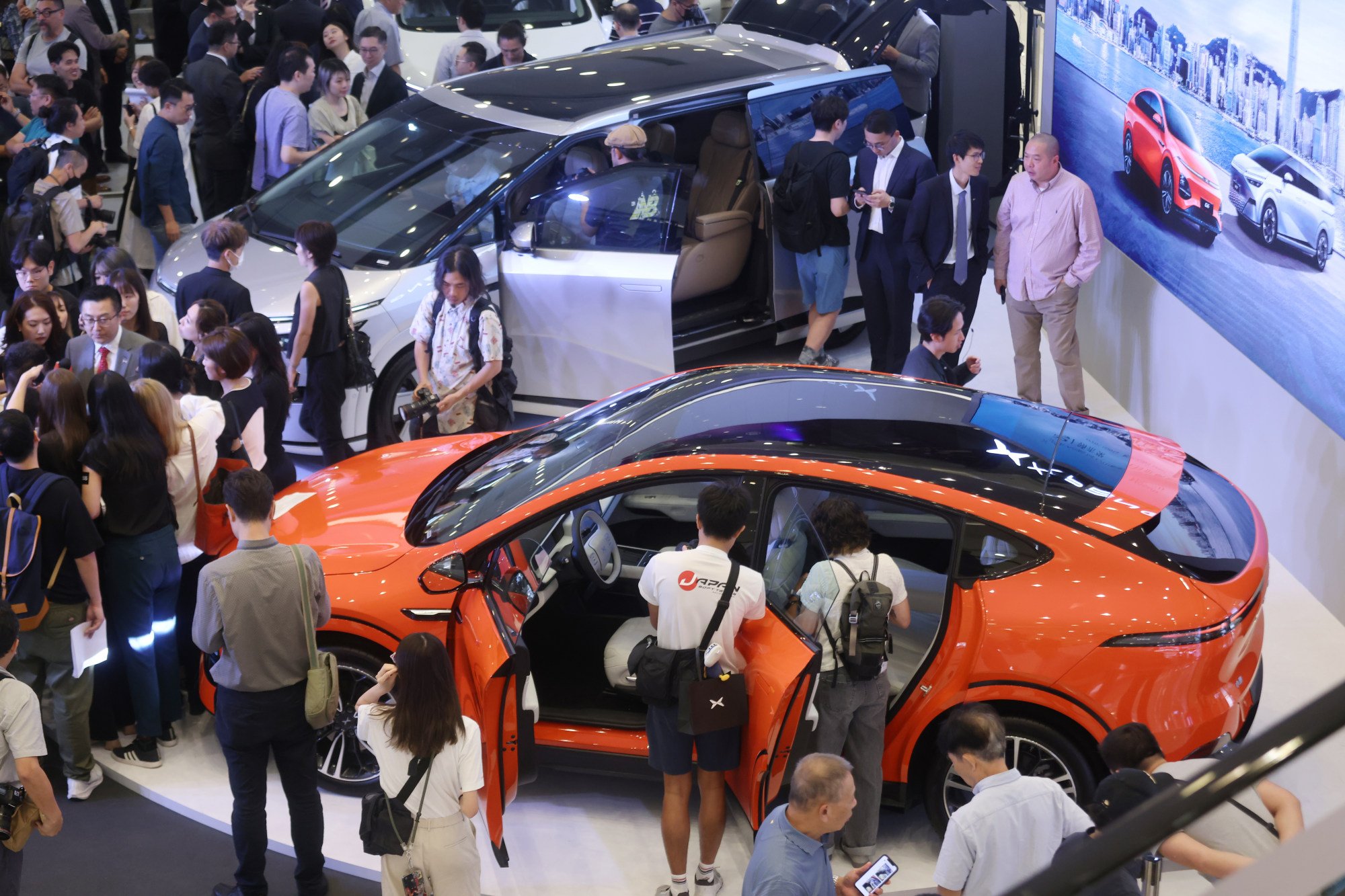
Exclusive | China’s Xpeng sees licensing of cutting-edge driving and EV technologies as new revenue streams
- Partnerships with other carmakers have enabled Xpeng to offer its technologies and generate revenue, vice-chairman and president says
- Xpeng’s advanced driving assistance software, which is available in more than 240 cities in China, will soon be rolled out internationally
Chinese smart electric-vehicle (EV) maker Xpeng will offer its autonomous driving and EV technologies to other carmakers, allowing the company to generate a new stream of revenue, further its research and development efforts and maintain its technological edge, according to its vice-chairman and president.
“We see more collaborations as the long-term trend, because it’s hard to imagine traditional car manufacturers developing smart driving technologies quickly by relying on their own capabilities,” said Brian Gu in an exclusive interview with the Post on Friday.
Smart driving technology is the future of EVs, he said, adding that recent partnerships with other carmakers have enabled Xpeng to license its technologies and generate economic returns. “I think if you own the leading technologies, there are many ways to monetise them.”
China’s smart EV makers are considered to be technologically ahead of global peers on many counts. Not only are they wowing consumers with longer driving ranges, their cars come equipped with smart cockpits boasting the latest digital advances, smart driving technology and other bells and whistles.

Once the dominant players in China, car giants such as Volkswagen and General Motors are now struggling to keep up with the mainland’s EV makers because of their slow electrification progress.
Xpeng, known for its XNGP (Navigation Guided Pilot) autonomous driving technology, announced last month that it had entered into a framework agreement with Germany’s Volkswagen.
The two companies will jointly develop an electrical and electronic architecture by integrating Xpeng’s latest technologies and equip it on Volkswagen’s made-in-China vehicles from 2026. This follows Volkswagen’s announcement last July that it would invest about US$700 million to acquire a 4.99 per cent stake in Xpeng.
Volkswagen sold 191,800 pure battery-powered EVs in mainland China and Hong Kong last year, 2 per cent of China’s 8.9 million pure-electric and plug-in hybrid cars in 2023.
Guangzhou-based Xpeng delivered 141,601 battery-powered EVs to mainland customers in 2023, while Shenzhen-based BYD sold over 1 million units to become China’s top pure EV maker.
Xpeng has long touted its smart driving technologies – including autonomous driving, digital cockpits and high-performance batteries – as the future of EVs.
The company spent 5.28 billion yuan on R&D, 44.5 per cent of its total operating expenses and 17 per cent of revenues in 2023.
Xpeng’s XNGP software, its advanced driver assistance system, is available in more than 240 cities across China, and achieved a utilisation rate of over 80 per cent among its customers, according to the company.
Xpeng plans to roll out the system internationally. It finished testing the XNGP functions in Germany last month and said it was “nearly road-ready” for Europe.
“We are in close and in-depth cooperation with Volkswagen, and we see that happening more often in the industry,” Gu said.

